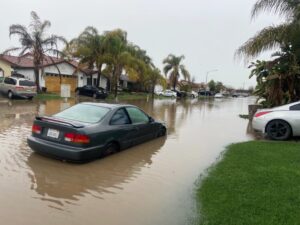
Los Banos Unified offers adult education program
By Mallika Seshadri, EdSource.org. Republished with permission.
Despite efforts across various sectors, adults throughout California continue to struggle to access education opportunities that can be critical for their family’s economic mobility.
The panel at EdSource’s roundtable, “Adult education: Overlooked and underfunded,” discussed how adults and their families can benefit from adult education, the common barriers to access and ways to overcome them.
“During the pandemic, our emergency room took in some of our most at-need people and triaged them to the right medical care that they need,” said John Werner, the executive director of the Sequoias Adult Education Consortium at Thursday’s discussion. “Adult schools do very similar work with education.”

Barriers to adult education
Panelist Francisco Solano grew up in Mexico, where he earned a high school education but had no interest in continuing his schooling. About 16 years ago, he came to the United States and found himself working for salad-packing companies.
He eventually enrolled in adult education classes at Salinas Adult School and is now wrapping up a doctorate in molecular biology at UCLA.
But the road through his adult education was “exhausting” and “not convenient at all.”
“That’s what I see with my peers,” Solano said. “They are not able to get out of that lifestyle because it’s so difficult for them to be able to have a job that secures rent and food for the families and, at the same time, find time and resources to go to school or try something else.”
Solano also believes that larger companies do not want migrants like him to succeed because that would take away a source of cheap labor.
Rural areas — where barriers associated with time and distance are greater — have a high need for adult education.
Steve Curiel, the principal of Huntington Beach Adult School, said not enough conversations about adult education are held at the policy level because most people in elected positions are unlikely to understand the critical role it plays, having experienced more traditional educational journeys.

Raising awareness and marketing
Carolyn Zachry, the state director and education administrator for adult education at the California Department of Education, stressed the importance of raising awareness and sharing stories like Solano’s among potential students.
“That gives the courage to come forward and to walk in those doors of that school,” she said. “And once they’re inside those school doors, then that school community wraps around them and really supports them.”
Werner also emphasized the importance of actively seeking students. He mentioned specific efforts to speak to individuals at local community events, like farmers markets and flea markets. A TV or radio presence can also be helpful, he said.
Helping communities overcome barriers
Numerous organizations are enacting measures to expand access to adult education, including creating remote and virtual options as well as providing childcare for students while they are in school.
Several panelists agreed that virtual learning can be a helpful way to bring educational opportunities to adults at home — though Kathy Locke, who teaches English as a second language in Oakland Unified, emphasized the importance of in-person instruction, so adults can learn the skills they need to succeed online.
“The more marginalized, the greater your need in terms of English level, the harder it is to access the technology to be able to use the technology to do distance learning well,” Locke said.
To improve access to online learning, Curiel said the Huntington Beach Adult School has provided laptops and channels for internet connection.
Providing childcare is another way to help reduce barriers for adults.
“Our classes provide babysitting for our students to be able to come with their children. Their children go to childcare, and then they’re able to come and learn,” Locke said.
“I think that as a district, we really named that as a barrier and really put our money where our mouths were, I think, and made that a priority to get adults in our classrooms, so that they can do the learning that they need.”
Broader benefits of adult education
Adult education also helps support a child’s education the roundtable panelists agreed.
For example, a child’s literacy benefits when parents attend English language classes, Locke said. And parents are more likely to be involved with their child’s education later on.
“If you want to help a child in poverty, you have to help an adult in poverty,” Werner said. “Only the adult can go get a job tomorrow.”

Adult Education in Los Banos
Los Banos Adult Education (LBAE) is a public education program for all adults, provided at no cost to the student by the Los Banos Unified School District. They offer flexible morning and evening classes for the working adult. In addition to the diploma program, we offer a Spanish GED preparation course. Adults must be 18 years of age and older to enroll.
LBAE offers convenient morning and evening classes, designed to accommodate the busy schedules of working adults. In addition to their comprehensive diploma program, they provide a specialized Spanish GED preparation course.
To learn more click, here.
Mallika Seshadri covers Los Angeles and LAUSD.
Allen D. Payton contributed to this report.





